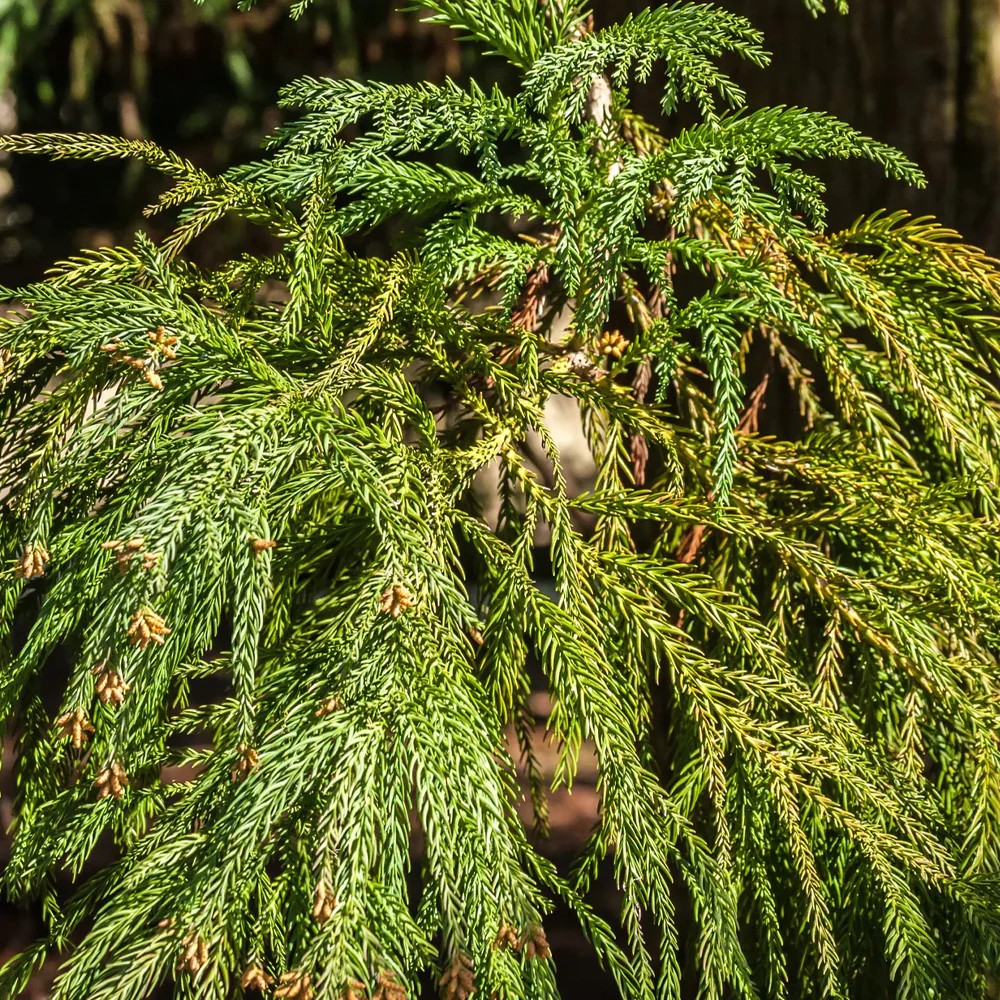Known as Japanese cedar or sugi, is an evergreen conifer with a pyramidal shape and slender, horizontal branching that is slightly pendulous at the extremities. A monotypic genus unrelated to the actual cedars is the Japanese cedar. It grows naturally as a single trunk tree to a height of 150 feet (rarely higher) with a diameter of 8 feet in forested areas in Japan and China. It is the national tree of Japan, where temples and shrines frequently plant it. It grows significantly more slowly when grown in the U.S., often reaching heights of 50 to 60 feet. Green to blue-green, fragrant, awl-shaped needles that are up to 3/4" long are spirally organized. Touching the foliage feels kind. Cold winters may cause foliage to bronze.


